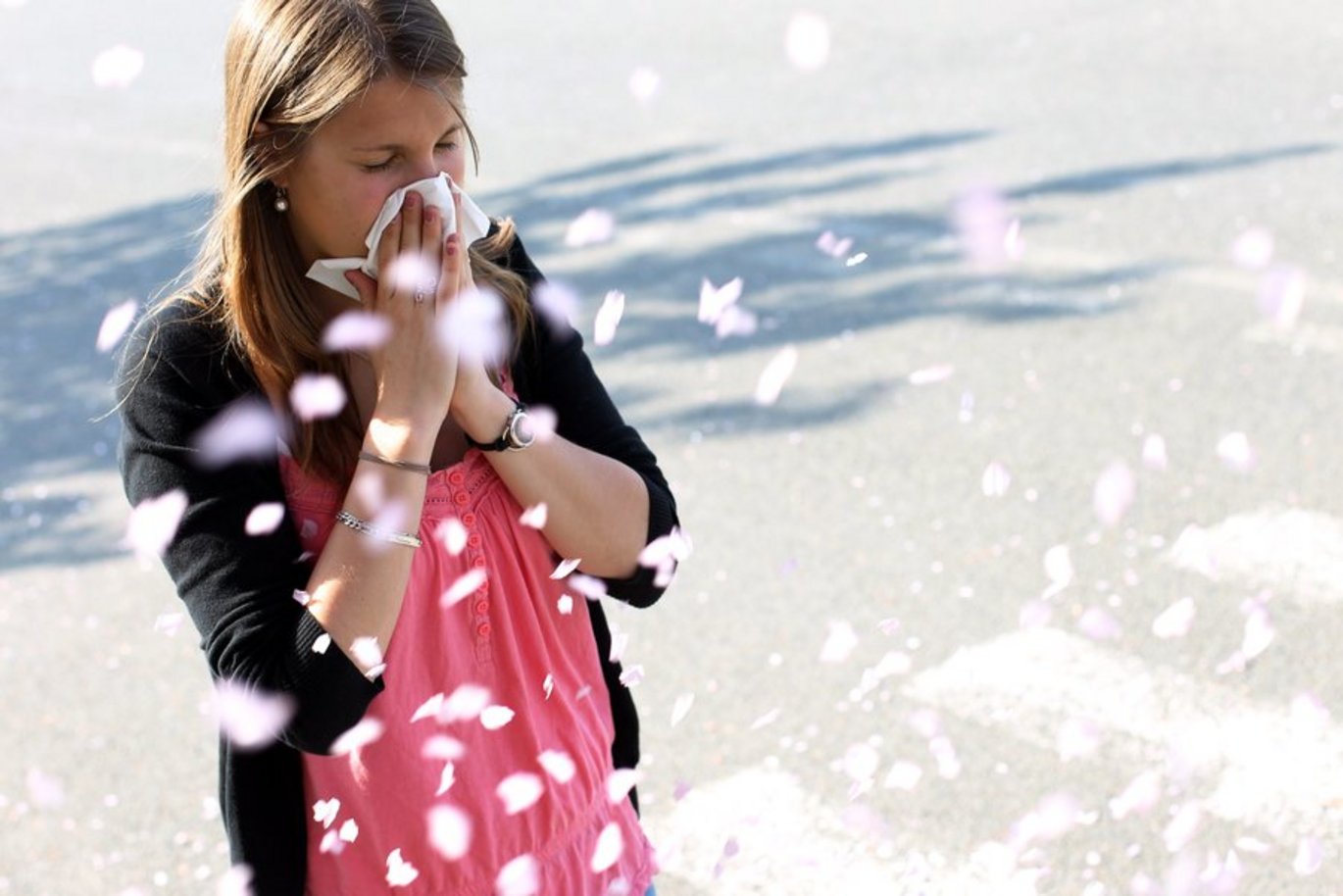test 1 fdblog
One in five Danes suffers from an allergy. At Aarhus University and Aarhus University Hospital, researchers have identified a treatment which may be able to end the allergy pandemic.

Itching, red and irritated eyes, and a runny nose. It is the high season for pollen, and for the almost half a million Danes who suffer from a pollen allergy, getting through the summer can be difficult. Allergy is a widespread disease whose prevalence is increasing dramatically worldwide. Some people believe that what we are seeing is an allergy epidemic.
However, there is hope for the future. At least, research from Aarhus University, Aarhus University Hospital, shows that a new treatment may have a beneficial effect. The treatment is called intralymphatic immunotherapy.
“The treatment involves injecting a small amount of the allergen into the lymph node in the groin. The lymph node forms cells that produce antibodies, and if you then inject the allergen you want to be protected against, for example elm or grass, it produces a very strong response of protective antibodies, which means that the cells then find it much harder to recognise the allergen,” explains Professor Hans Jürgen Hoffmann.
Faster and with fewer side effects
The research shows that when the allergen is injected directly into the lymph node, the body is better protected against the allergic reaction, while the treatment is also much less time-consuming for the patient and has fewer side effects than other treatments.
“The treatment is performed over two months, with the patient being injected three times at monthly intervals,” says Hans Jürgen Hoffmann.
Today’s allergy treatments usually consist of tablets or injections that reduce the person’s hypersensitivity to allergens. However, it is a lengthy process.
“Today, patients can be vaccinated against allergies. This is a course of treatment that stretches over three years. For the first 16 weeks you have to show up once a week for an injection, and then every six to eight weeks for three to five years. However, only students and pensioners have the time for this sort of treatment. Finally, there is a new treatment, which involves taking a tablet every day for three years. But this can be hard to stick to,” says Hans Jürgen Hoffmann.
At the moment, seven patients are involved in a intralymphatic immunotherapy trial, and the researchers are expecting positive results in the form of fewer symptoms and less use of allergy drugs compared to previously. Next year the treatment will be tested on 36 participants to further test its efficacy. If everything goes according to expectations, it will be possible to offer the treatment from autumn 2014.
Further information
Professor Hans Jürgen Hoffmann
Aarhus University, Department of Clinical Medicine, and
Aarhus University Hospital, Department of Respiratory Medicine
Direct tel.: +45 7846 2107
Mobile tel.: +45 2818 8147
hans.jurgen.hoffmann@ki.au.dk
Did you know that…
- Did you know that alcohol makes you more prone to hay fever? Alcohol can dehydrate you, possibly exacerbating your reaction to pollen in the air.
- Did you know that an allergy typically lasts 20-25 years before it burns out, unless it is replaced by another allergy?
- Did you know that allergies are hereditary? If your mother suffers from an allergy, there is a 50% risk that you will also have it. However, if your father has the allergy, there is only a 30% risk. But if both parents have the allergy, then there is a 75% risk that their children will have it.
- Did you know that the oldest child is more likely to suffer from an allergy than his or her siblings?
- Did you know that having a furry animal in the house protects against allergies?
The pollen season – when and what?
- Spring: Hazel pollen, alder pollen and elm pollen in early spring a well as birch in May.
- Summer: Grass pollen in June/July.
- Late summer: Mugwort pollen in July/August.
Hay fever
- Hay fever is the name for the allergy symptoms which affect the eyes and nose. Hay fever is the most common chronic disease in the developed world, and it is estimated that about one million Danes suffer or have suffered from hay fever.
- Within the past 20 years, a two to threefold increase has been observed in the number of people with hay fever.
- Slightly more men than women suffer from the disease.
- If you have hay fever, you also have an increased risk of developing asthma. Eighty per cent of patients with allergic asthma also have hay fever.
What can you do?
- Keep doors and windows closed during daylight hours.
- Avoid drying clothes – and especially bedlinen – outside during this period.
- Use sunglasses when you are outside.
- Avoid taking exercise in the middle of the day.
- Rinse your hair before going to bed if you have spent a long time outside.
Allergies in Denmark
- Suffering from an allergy means being hypersensitive to a substance which other people do not have any problems inhaling or being surrounded by.
- Allergic symptoms can affect the skin, the mucous membranes or internal organs.
- Allergies usually crop up during childhood or young adulthood. Children whose parents have allergies are more likely to develop an allergy than other children.
- Up to one in five Danes has had either asthma and/or allergic hay fever, with many being allergic to pollen, house dust mites and cats.
